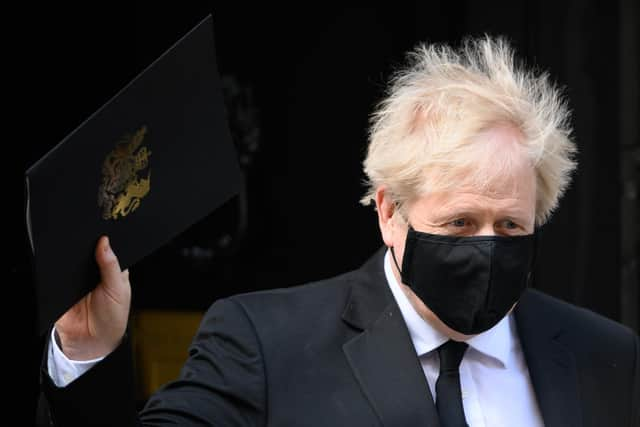Boris Johnson's refusal to grant Scottish independence referendum would 'fundamentally' change Union, says former UK civil servant
Professor Ciaran Martin said preventing indyref2 in the event of a pro-independence majority at Holyrood would mean the Union changes from one based on consent to one “based on force of law”.
Prof Martin was constitution director at the Cabinet Office between 2011 and 2014, sitting alongside David Cameron when the Edinburgh Agreement was signed with the Scottish Government in 2012.
Advertisement
Hide AdAdvertisement
Hide AdNow a professor at Oxford University’s Blavatnik School of Government, he has written a paper discussing the constitutional issues around the 2014 referendum and a possible re-run in the future.


It says: “The formal position of the Government of the United Kingdom appears to be that there will be no lawful or democratic route by which to achieve Scottish independence for an unspecified number of decades.
“This is irrespective of how Scotland votes in May, or at any subsequent election during this unspecified period.
“My principal contention in the paper published today is that should events transpire – either later this year or in subsequent years – that make this currently rhetorical position a firm constitutional reality, then the Union as we understand it will have changed fundamentally.
“In effect, it would change the Union from one based on consent, to one based on the force of law.”
He said his paper did not aim to make the case for the merits of the union or independence, but was “about how the British state faces up to the possible clash between votes and laws”.
Prof Martin, who is due to discuss his paper with historian Sir Tom Devine on Tuesday, also said both sides in the 2014 referendum made “implausible” claims.
The Yes side wrongly asserted there would be an automatic entitlement to a currency union, he said, while the No side suggested an independent Scotland would be “alone and friendless” in the world.
Advertisement
Hide AdAdvertisement
Hide AdProf Martin further argues there would be “huge consequences” to independence, including some form of land border with England and a “very challenging” situation with Government finances.
The paper continues: “Equally, however, unionists should not repeat their 2014 mistake of, in effect, claiming that the enterprise of creating a successful Scottish state is impossible.”
Addressing Prof Martin’s comments, SNP depute leader Keith Brown said: "This paper blows apart Boris Johnson's strategy for trying to block a referendum and exposes it for the anti-democratic ploy it is.
"Professor Martin's comments are a welcome acknowledgement – from someone at the heart of the UK Government in the negotiations leading to the 2014 referendum – that there is no democratic basis to block an independence referendum if the people of Scotland vote for one.
"The union must always be based on consent and to try instead to base it, in Prof Martin's words, on the 'force of law' would be doomed to failure.
"Scotland has a right to decide its own future, and if there is a mandate for a referendum at this election then Boris Johnson has no democratic or moral authority to try and block it."
Comments
Want to join the conversation? Please or to comment on this article.